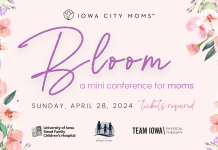I’m so mad I could spit. (Don’t tell my kids I said that.)
This is not the post I wanted to write.
One of my students–at 13 years old–just died of pediatric cancer. (I don’t remember the long scary name of this particular type of cancer, but at this point I don’t really care about the correct medical diagnosis.) This would be the student that died of cancer three weeks after another student of mine died of cancer, who died of cancer three weeks after I found out one of my long time friends just had her three-year-old nephew diagnosed with brain cancer. They might be able to operate and they could try radiation therapy, buuuuut don’t hold your breath.
Enough. That’s enough. I’ve had enough. I’m so angry.
I don’t want another phone call about cancer (and my kids are healthy!). I don’t want to read another Facebook post about a child being diagnosed with a potentially deadly disease while I try to figure out exactly what to write in the comments. (“I’m so sorry to hear” …too flippant? “Praying” …too cliche? “THIS MAKES ME SO ANGRY”…too angry?) I don’t want to join another Facebook group with a title like “You Got This,” or “Cancer Picked the Wrong Dude.” No more cancer t-shirts, wristbands, meal train sign-ups.
I DON’T WANT TO THINK ABOUT PEDIATRIC CANCER!
A colleague once told me that you should never fight anger. Anger, she told me, is the emotion that people feel right before they are motivated do something. Sometimes anger is an emotion we can use to move us forward. So that’s why I’m writing this post. I don’t want to write a post about pediatric cancer. I want to write a post about being moved to do something about pediatric cancer. Even more, I want to channel anger and sadness and guilt to move you to do something, too.
Determined, motivated, angry moms change the world.
(Side bar: have you ever seen an angry mom clean a house? Or make a bed? Or load the dishwasher? See? Anger=action!)
Here’s the story: Cancer, no matter the type, can be devastating, scary, life-changing. But pediatric cancer comes with its own unique problems.

Since 1980 fewer than 10 drugs have been developed for use in children with cancer. Many of the treatments used on children are the EXACT. SAME. TREATMENTS as those used in 1970.
This is due, in part, to the fact that only 4% of federal government cancer research funding goes to study pediatric cancer–all types of pediatric cancer–of which there are more than 10.
35% of children diagnosed with cancer will die within the first 30 years of diagnosis. This is due in part to the fact that the treatments do irreparable damage to the heart, lungs, and liver and also due to the fact that the treatments used are known to cause either a relapse or a secondary type of cancer in adults.
In other words, the only treatments in use are not specific to children’s bodies, have not had any significant changes in the last 35 years, and are known to make children sick (if not kill them) as adults.
That’s unacceptable. It’s unacceptable for my child, for your child, or for anyone else’s child for that matter.
So, what can we do?
Donate
There are foundations dedicated to pediatric cancer research. If you are able, make a donation to one of these research foundations:
National Pediatric Cancer Foundation
Speak Up
If you are not able to contribute money, spread the word! I had no idea pediatric cancer research was in this current state until a few mothers of cancer patients enlightened me. Frankly, those mamas have enough to worry about. This is a cause we can take up on their behalf.
Contact Politicians
Ask your elected politicians if they support pediatric cancer research. What’s their track record on voting on cancer research? What do they think about the appropriation of research funds?
So, this is it. The blog post I didn’t want to write. I can’t imagine it’s a blog post that any of you actually wanted to read. But here’s the thing: motherhood isn’t always about want-to’s. Sometimes it’s about have-to’s. I think this is a have-to moment for us. We HAVE TO do something. We owe it to our children and our children’s children.
I’ve had enough. Haven’t you?










